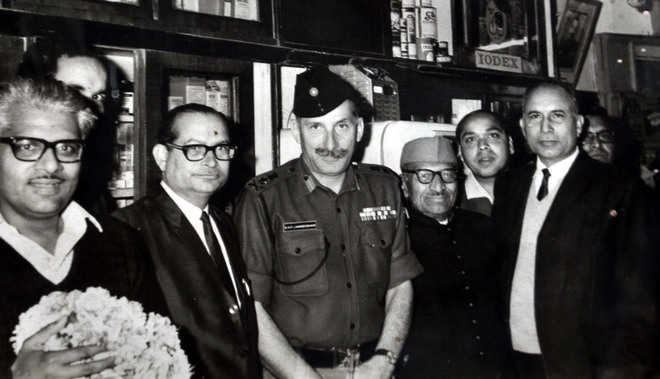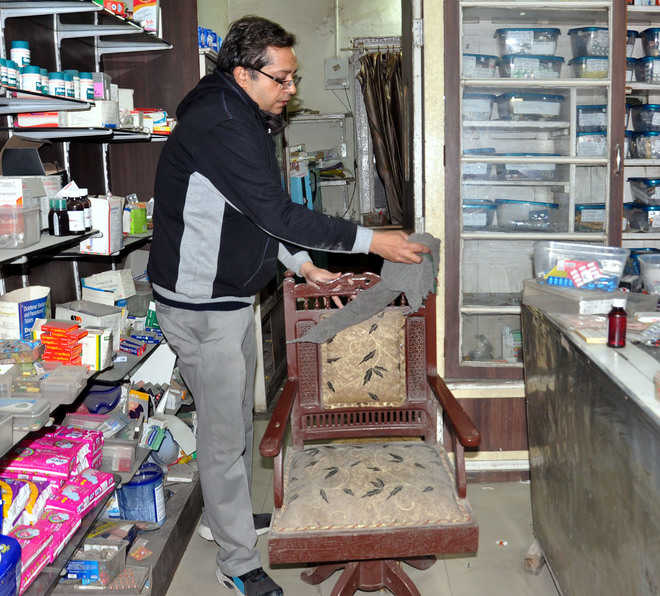Madam,
I am a fourth-generation member of an armed forces family, married into a 5th generation armed forces family, therefore, even before I begin my letter I would like to bring to your notice that nothing I say today comes without deep thought and a feeling of seethed agony to see how our brave men and women in the uniform are being treated by the civil dispensation in your state.
My letter to you today is written in my capacity as an Army wife and not so much as just another pained citizen of India. I would like to know that despite the countless times the country has demanded evidence from men from our fraternity regarding their effectiveness and humanity, what has been your contribution as a politician and the incumbent Chief Minister in ensuring that troops are looked after in a way that they feel motivated to serve you and “brethren” in the valley despite living a life marred with constant humiliation, stress and a an “awaam” that is not only thankless but also hostile.
What steps have you taken to reign in or at least counsel the gentry who leave no stone unturned while comparing a martyr like Lt. Umar Fayyaz with a murderous terrorist like Burhan Wani? Is that not the greatest disrespect to the memory of someone who made the ultimate sacrifice for the Motherland?
I would also like to ask you and by extension the Government of J&K exactly how many FIRs the State Police filed when Operation Clean Up was launched in the early months of 2017 to bring back peace in an otherwise upturned valley?
Was it convenient then to let the armed forces do their job because your fragile political career depended on it? Or is it easier now to prosecute an entire regiment because you need to win the “hearts and mind” of the stone pelting minority?
I am seeking these answers today on behalf of all those women who are sitting far away from the tumultuous events of the valley wondering if today their loved ones are safe from both grenades and stones? And while they are ceaselessly watching your back, I need to know if you are watching theirs? Because, clearly, the events since January 27th are not hinting at a State Government willing to grant our men and women in uniform the support needed to serve their country and the people of J&K with the dignity expected of the Indian Armed Forces. A few months back it was Major Gogoi, today it is Major Aditya, tomorrow it could very well be any of our husbands or brothers, what do we do then?
Did it ever strike you as ironical Madam, that the case against Major Gogoi which was so enthusiastically supported by the more liberal factions of our great country, took place during when he was on election duty defending the Kashmiri people’s right to vote, and used his Army Jeep and thinking on his feet found the best possible solution to send a message to instigators of violence that they would not get in the way of the conduct of free and fair elections on his watch. Sure his method was unconventional, but he was pushed into a corner and he worked with what he had and tied the offender to his Jeep to iterate his point, but why did everyone stop at that? Why did no one notice that the Major also ensured that no violence broke out and voting remains unaffected till the very last vote was cast? Major Aditya before being termed a “murderer” in the FIR, is a decorated officer who has proved his mettle during his tenure in the RR with four kills of Jaish-e-Muhammad terrorists to his name.
Your State Journalists and Politicians are quick to call uniformed men rapists and murderers, but then how do you explain the need to turn to these very “murderers” when the water rises in the Jhelum and there is panic across the valley. Will you please explain to me that what exactly are our “irrational” men doing in Siachen where even nature has given up?
Will you please also care to elaborate the need for the State Government of Jammu & Kashmir to turn to the “marauding” Indian Army to set up Goodwill schools in the valley or run Skill Training sessions for the “Kashmiri Awaam”, because from where I am standing, I see a young world kick boxing champion Tajamul Islam, the student of a local Army Goodwill School, being motivated by our jawans to kick hard and fight like a champion and conquer the world. Is it just us or do you too feel the pride when 9 students coached by the Super 40 Class organized by the Army crack their way into the prestigious IITs of the country?
Our men serve the nation without a flutter of self-conscious worry, I have yet to come across an officer or a jawan who would flinch at the news of being posted to the RR, for them that is the utmost honor to serve & protect the dignity of India from where it matters, the Frontlines. But what kind of an example are you setting by prosecuting an officer of the Indian Army who only chose to act in order to save the lives of his fellow soldiers. How come the police hasn’t registered an FIR against the stone pelting blood thirsty mob causing extensive damage to government property and personnel? Do you think you are any less accountable to the wife of the JCO who got hit on the head and was almost set on fire? Is a stone pelting, violence inciting youngster of more worth that the men who seek to protect and empower everyday life in the valley even if it comes at the peril of their own? I would want to know exactly what has been their contribution towards the constructive social upliftment that hasn’t already been undertaken by the Army? This is the same Indian Army, Madam, which pulled out a terrorist at the end of an encounter and took him to the hospital despite suffering fatalities of their own. Or have you chosen to forget that? Of course you have.
What is it about their selfless service and unparalleled commitment to the nation that scares you, your administration? Need I remind you, that it has been a result of the relentless presence and action of the Armed Forces that tourism has managed to make a comeback in the valley, where the bulk of your economy depends on tourists from across the country and beyond. Do you for a second feel that they would feel safer in the presence of your recently pardoned stone-pelters than they would knowing that there is an Army outpost nearby looking after their security.
It took the likes of Bollywood close to two decades and more, to feel “safe enough” to return to Gulmarg for work, making it possible for your state to reclaim its spot as a favoured tourist destination. Now I really hope Madam, that you alone are not taking the credit for the booming pony business in valley, after all, the visitors are relaxing only because there are those silent ADP marches, ROP routines taking places somewhere in the backdrop.
I can assure you, Madam Chief Minister, it takes a certain amount of courage to sit by the phone every day waiting for the call to come in assuring us that all is well where our men are posted, but it takes even more gumption for most women from our fraternity to live with the knowledge that someday that call may not come. So, I need to know from you just what are you prepared to say to all the women sitting away from their loved ones when things go south and it was your action that let those men down.
I would like to know from the administration of your state exactly how do you justify to the 70,000 plus men who made Operation Rahat a life saver for the citizens of the valley and beyond, that their hard work counts for nothing compared to your efforts to appease 2000 odd stone pelters, who I am sure will not think twice before lynching another policeman outside another mosque or try to set ablaze another olive green vehicle because in their eyes their government understands their murderous intent but does not acknowledge the dedication of the men sworn to guard you all with their lives.
These men too have a life beyond the borders, they too have families and aspirations of their own. And as someone who has grown up with olive green in their blood, I demand that you tell me how is my brother or a brother officer expected to fight with dignity for your safety when you will not even give him the scope to protect his own life and those of others who look up to him as their leader, and are willing to take the bullet should the need arise.
You may feel the need to write to the Central Home Ministry if a terrorist is getting ill-treated in Tihar Jail, but how many times have you tried to write a heartfelt letter to the father of Captain Saurav Kalia who was tortured and killed because he chose to remain loyal to the nation till his last breath.
Madam, you have a lot of soul searching to do and I hope the next time you feel safe enough to venture out on a political rally, you remember to thank the men who keep you safe even as you decide to walk all over them. It is indeed shameful that you are choosing to prosecute a brother officer for not giving in to a diabolical crowd.
I hope better sense prevails soon
Jai Hind
Malvika S. Lamba
#BringbackKashmir!
#Enough!
#IndianArmydeservesbetter!

It is indeed ironical that in a week where J&K has seen FIR filed against Major Aditya and his unit for firing in self-defense, today, i.e 31 January, falls the birth anniversary of India’s first PVC Major Somnath Sharma. Major Somnath gave up his life while defending the same Kashmir from Pakistani rapists and ravagers, in short, the Pakistan Army which had attacked Kashmir on 22 October 1947 and was on the doors of Srinagar. Jinnah and his army had taken advantage of Maharaja Hari Singh’s clever by half attempt to make Kashmir ‘Switzerland of the East’ and made a vicious attempt to grab the state by force. Major Somnath had landed with his Kumaonis while his arm was still in plaster courtesy a hockey playing injury. It was in Budgam where his company took on the Pakistani army despite being outnumbered 7:1. Major Somnath and his company fought like lions with exemplary leadership from him with even the plaster not being hindrance to bravery. The Kumaonis inflicted heavy casualties on the enemy notwithstanding the losses they themselves suffered. Major Somnath was grievously injured as a mortar shell fell on their ammunition storage spot. His last message; “The enemy are only 50 yards from us. We are heavily outnumbered. We are under devastating fire. I shall not withdraw an inch but will fight to the last man and last round”, has passed on to military folklore. The bravery displayed by Major Somnath and his company saved Srinagar airport from falling into the hands of Pakistanis and kept India’s lifeline into the state, functional. That we failed to take back PoK in 1947-48 was political failure for which the country is still paying a heavy price. That the same Kashmiris whom the army saved from Pakistani savages have been brainwashed into throwing stones at their protectors and filing FIR’s show that religion has been abused to spread hatred. But all this does not in anyway lessen the sacrifice made by Major Somnath Sharma and it is our duty to ensure that these sacrifices do not go in vain.
: The Param Vir Chakra is India’s highest military decoration for acts of conspicuous gallantry in the presence of the enemy.
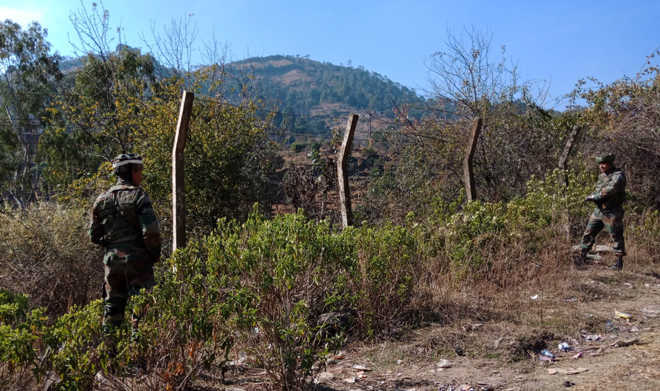


















































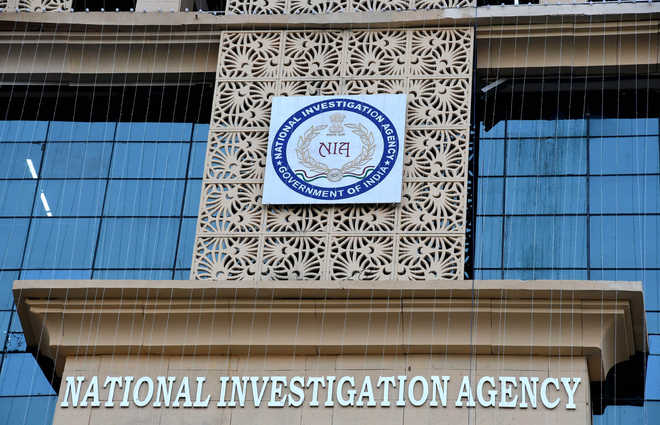
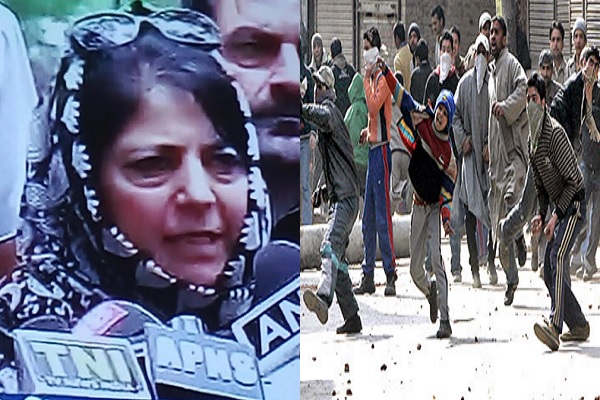

 HT PHOTO
HT PHOTO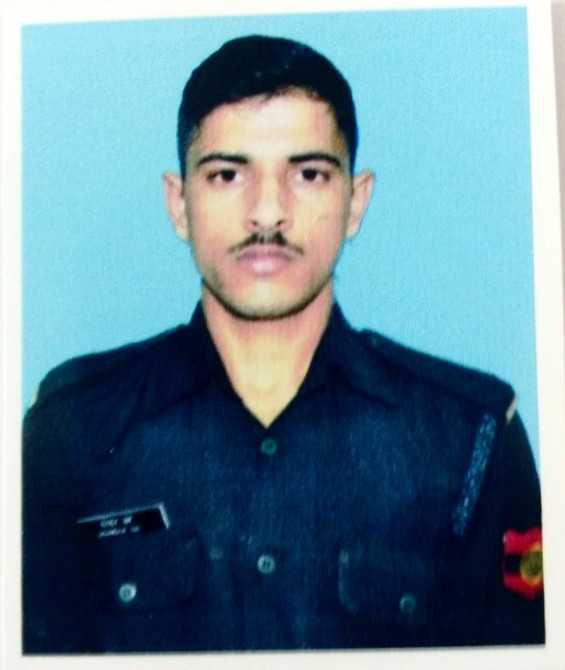
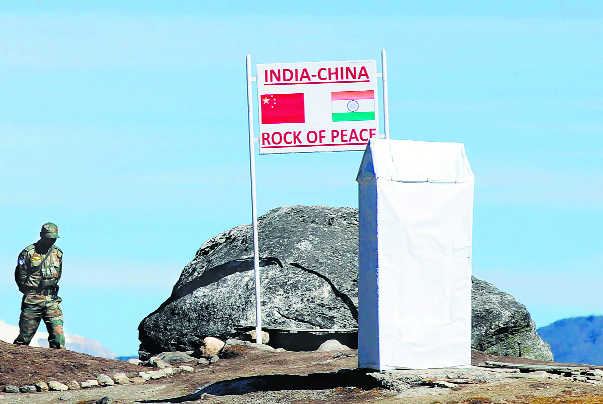

 HT PHOTO
HT PHOTO HT FILE
HT FILE